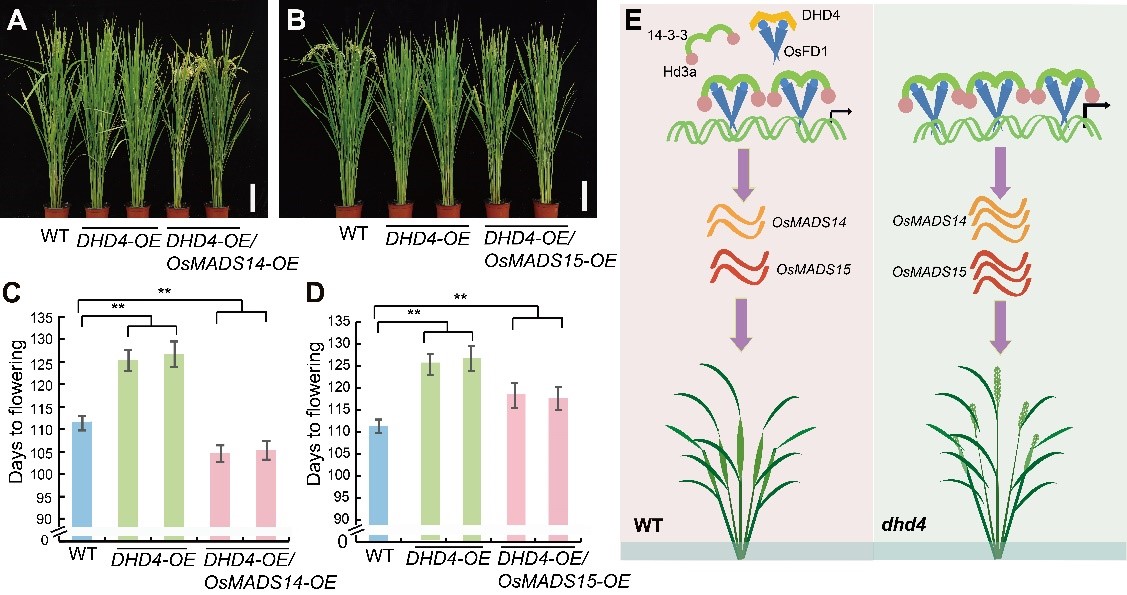DHD4, A CONSTANS-like Family Transcription Factor, Delays Heading Date through Affecting the Formation of FAC Complex in Rice
MaohongCai, ShanshanZhu, MingmingWu, XiaomingZheng, JiachangWang, LiangZhou, TianhuiZheng, SongCui, ShirongZhou, ChaonanLi, HuanZhang, JuntaoChai, XinyueZhang, XinJin, ZhijunCheng, XinZhang, CailinLei, YulongRen, JianminWan
Molecular Plant, 24 November 2020, IF: 12.084
doi: 10.1016/j.molp.2020.11.013
https://doi.org/10.1016/j.molp.2020.11.013
Abstract
Heading date (or flowering time) is one of the most important agronomic traits in rice, which influences the regional adaptability and crop yield. Many major-effect genes have been identified on rice heading date, which influence heading date to a large extent, and they are hard to utilize in rice molecular breeding. While minor-effect genes on heading date which are more desirable for fine-tuning flowering time without significant yield penalty were less reported. Here, we identified a new minor-effect heading date repressor, Delayed Heading Date 4 (DHD4). The dhd4 mutant shows a slightly earlier flowering phenotype without a notable yield penalty compared with wild type plants under natural long day (NLD) conditions. DHD4 encodes a CONSTANS -like transcription factor localized in the nucleus. Molecular, biochemical and genetic assays show that DHD4 can compete with 14-3-3 to interact with OsFD1, thus affecting formation of the Hd3a-14-3-3-OsFD1 tri-protein FAC complex and causing reduced expression of OsMADS14 and OsMADS15 , and ultimately delayed flowering. These results shed new light on the regulation of flowering time in rice and provide a promising target for fine-tuning of flowering time to improve the regional adaptability of rice.





